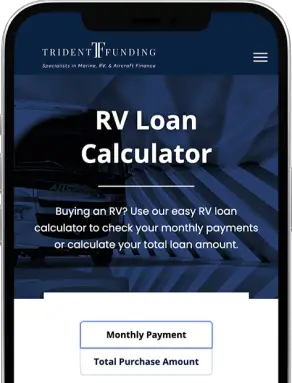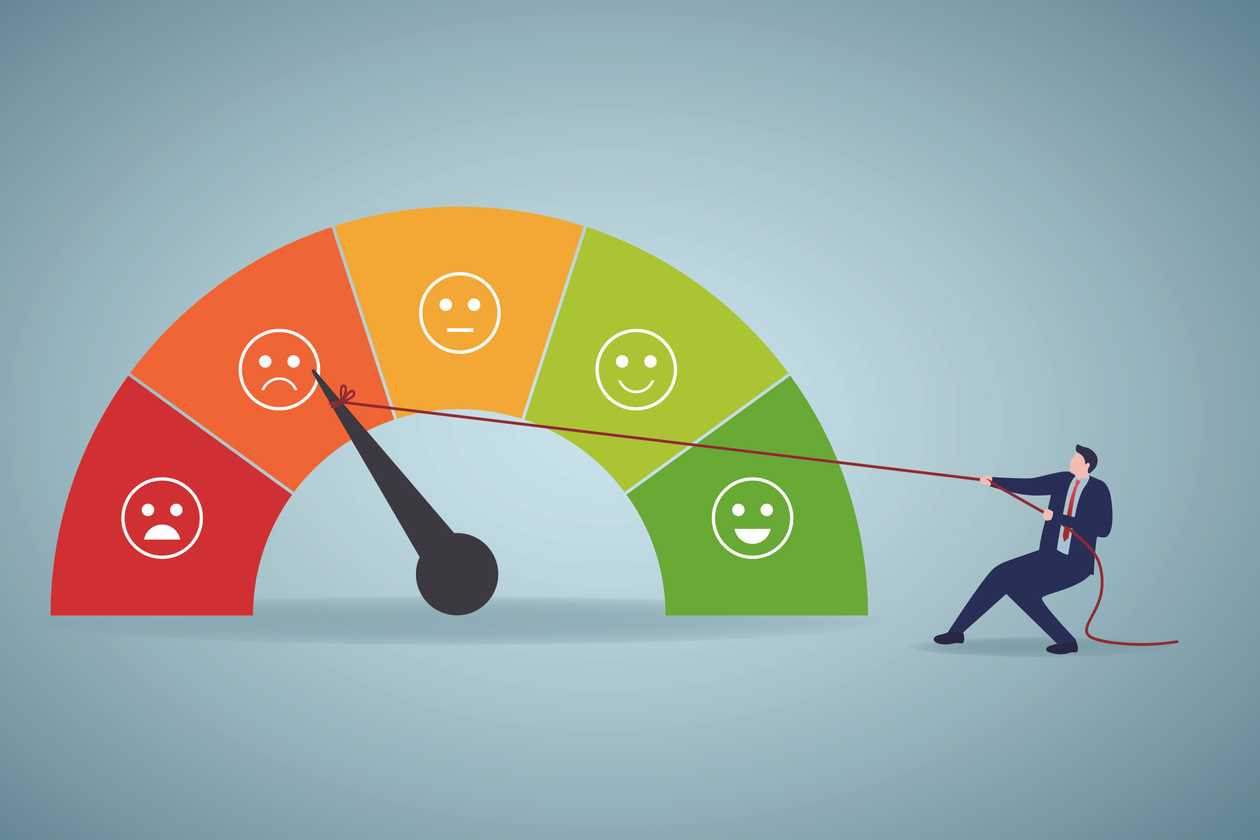For RV loans, FICO scores from the three major credit bureaus (Equifax, Experian, and TransUnion) are usually used. Lenders typically look at each applicant’s middle score.
Your FICO score is a key factor that determines your eligibility for an RV loan and the interest rate you may receive. Lenders prefer applicants with higher scores as they demonstrate a lower risk of default. Understanding how your FICO score impacts your RV loan application can help you prepare and improve your financial profile before seeking financing.
By maintaining good credit habits and monitoring your score regularly, you can work towards securing a favorable loan for your RV purchase.

:max_bytes(150000):strip_icc()/which-fico-scores-do-lenders-use-5116055-final-e19c96c0fd1647b59e954af759dd1a28.jpg)
Credit: www.investopedia.com
- Importance Of Fico Score For Rv Loans
- Different Types Of Fico Scores
- Rv Loan Lenders’ Preferred Fico Score
- Tips To Improve Your Fico Score For Rv Loans
- Alternative Credit Scoring Models For Rv Loans
- The Role Of Fico Score In Rv Loan Interest Rates
- Special Considerations For First-time Rv Buyers
- Working With A Professional Credit Counselor
- Frequently Asked Questions For Which Fico Score Is Used For Rv Loans
- Conclusion
Importance Of Fico Score For Rv Loans
Understanding the importance of FICO score for RV loans is crucial. Your FICO score plays a significant role in determining your eligibility and terms when applying for an RV loan. Let’s delve into why your FICO score matters for RV loans and how it impacts the approval process.
Why Fico Score Matters For Rv Loans
A high FICO score indicates a history of responsible credit management. Lenders consider this score to assess your risk as a borrower for an RV loan. A good FICO score can lead to better loan terms and lower interest rates.
Impact Of Fico Score On Loan Approval
A low FICO score may result in loan rejection or higher interest rates, making it essential to maintain a good score before applying for an RV loan. Lenders rely on your FICO score to determine your creditworthiness and ability to repay the loan on time.
Different Types Of Fico Scores
RV loans often use the FICO Auto Score, which is specifically designed to evaluate creditworthiness for automobile purchases. This score takes into account factors like your payment history, credit utilization, and length of credit history to assess your eligibility for an RV loan.
Understanding The Fico Score Range
The FICO score range is a numerical representation of an individual’s creditworthiness, typically falling between 300 and 850. A higher score indicates lower credit risk.
Understanding the FICO score range is crucial for determining eligibility and interest rates for various loans, including RV loans.
Fico Score Versions And Their Variations
FICO scores are not one-size-fits-all; different versions exist to meet the needs of lenders in different industries. These versions can vary based on the scoring model and data used.
- FICO Score 8 is commonly used by lenders for general credit decisions.
- FICO Auto Score is specific to auto loans, while the FICO Bankcard Score is tailored to credit card lending.
It’s essential to be aware of these variations and which version of the FICO score is being used when applying for an RV loan to ensure accurate assessment and competitive terms.
| FICO Score Version | Industry |
|---|---|
| FICO Score 8 | General credit decisions |
| FICO Auto Score | Auto loans |
| FICO Bankcard Score | Credit card lending |
Rv Loan Lenders’ Preferred Fico Score
When it comes to securing an RV loan, your FICO score plays a critical role in determining your eligibility and the terms of the loan. RV loan lenders have specific preferences when it comes to FICO scores, and understanding these preferences can help you increase your chances of obtaining a loan. In this article, we will explore the most commonly used FICO score by RV loan lenders and the factors that influence their choice.
Most Commonly Used Fico Score By Rv Loan Lenders
RV loan lenders typically rely on the FICO score provided by the Experian credit bureau. Experian is one of the largest credit reporting agencies and its FICO score model is widely recognized by financial institutions. The FICO score is a three-digit number ranging from 300 to 850, with a higher score indicating better creditworthiness.
Borrowers with a FICO score of 700 or higher are considered to have excellent credit and are more likely to secure competitive loan terms. On the other hand, borrowers with a FICO score below 580 may struggle to obtain approval from traditional lenders, as their credit history suggests a higher risk of default. However, it’s important to note that each lender has its own specific requirements and may consider additional factors when assessing loan applications.
Factors Influencing Lenders’ Choice Of Fico Score
When evaluating loan applications, RV loan lenders consider several factors in addition to the FICO score. These factors help lenders gauge the borrower’s ability to repay the loan and manage their credit responsibly. Some of the key factors that influence lenders’ choice of FICO score include:
- Payment History: Lenders assess the borrower’s payment history to determine if they have a track record of making timely payments on their debts. A history of late payments or defaults can significantly impact the borrower’s creditworthiness.
- Credit Utilization: Lenders consider the borrower’s credit utilization ratio, which is the percentage of available credit that is currently being used. Higher credit utilization can indicate an increased risk of default.
- Length of Credit History: The length of the borrower’s credit history is another important factor. Lenders prefer borrowers with a longer credit history, as it provides more data points to assess creditworthiness.
- New Credit Applications: Lenders also consider the borrower’s recent credit applications. Multiple applications within a short period of time may suggest financial instability or desperation.
- Debt-to-Income Ratio: Lenders evaluate the borrower’s debt-to-income ratio, which compares their monthly debt obligations to their monthly income. A high debt-to-income ratio can indicate a higher risk of default.
While the FICO score is a crucial factor in securing an RV loan, it’s important to remember that lenders assess multiple factors to make a well-informed decision. Maintaining a strong credit profile with a solid payment history and responsible credit management can increase your chances of obtaining favorable loan terms, regardless of the specific FICO score used by the lender.
Tips To Improve Your Fico Score For Rv Loans
Improving your FICO score is crucial when applying for an RV loan. A higher credit score can result in better loan terms and lower interest rates, potentially saving you thousands of dollars over the life of the loan. Here are some practical tips to improve your FICO score for RV loans:
Reviewing And Correcting Credit Reports
Regularly reviewing your credit reports can help ensure their accuracy. Check for any errors such as inaccurate account information or fraudulent activity. Disputing and correcting these errors with the credit bureaus can improve your FICO score.
Reducing Debt And Managing Credit Utilization
Reducing overall debt and maintaining a low credit utilization ratio can positively impact your FICO score. Aim to pay down outstanding balances and avoid maxing out credit cards to keep your credit utilization ratio low.
Timely Payment History
Consistently making on-time payments is essential for a healthy FICO score. Late payments can significantly lower your score, so make it a priority to pay all bills on time, including credit cards, loans, and other debts.
Avoiding New Credit Applications
Applying for new credit can temporarily lower your FICO score. Limiting new credit inquiries can help to maintain a stable credit profile, giving lenders confidence in your ability to manage credit responsibly.
Alternative Credit Scoring Models For Rv Loans
Non-fico Credit Scoring Models
“` When it comes to securing an RV loan, non-FICO credit scoring models offer an alternative to the traditional FICO score. Lenders use various non-FICO models such as VantageScore, Experian’s PLUS score, and TransUnion’s TransRisk score. These models take into account diverse credit data beyond what is considered in traditional scoring, giving a more comprehensive view of an individual’s creditworthiness. “`htmlPros And Cons Of Alternative Credit Scoring
“` Pros:\ 1. Inclusion of Additional Data: Non-FICO models consider rental payments, utility bills, and other non-traditional credit data. 2. Potential for Better Assessment: The broader data scope can provide a more accurate representation of a borrower’s creditworthiness, benefiting those with limited credit history or those working to rebuild their credit. 3. Enhanced Opportunities: For individuals with a strong alternative credit history but a lower traditional credit score, these models can open up opportunities for RV loans. Cons:\ 1. Lender Familiarity: Some lenders may be more familiar with and rely on traditional FICO scores, potentially making it more challenging to find a lender utilizing non-FICO models for RV loans. 2. Inconsistent Results: Different non-FICO models may generate varying scores for the same individual, creating confusion and potential disparities in loan terms. 3. Limited Acceptance: Despite the potential benefits, the use of non-FICO credit scoring models for RV loans may not be as widespread as traditional FICO scores. Consideration of these alternative credit scoring models can be beneficial for individuals aiming to secure an RV loan, especially if their traditional FICO score does not fully reflect their creditworthiness. While the use of non-FICO models may present some challenges, the potential for a more accurate assessment of creditworthiness makes exploring these options worthwhile.The Role Of Fico Score In Rv Loan Interest Rates
The Role of FICO Score in RV Loan Interest Rates
If you’re in the market for an RV loan, it’s important to understand the role of your FICO score. The FICO score, which is a credit scoring model developed by the Fair Isaac Corporation, plays a crucial role in determining the interest rates you’ll be offered for your RV loan. Lenders use this score to assess your creditworthiness and determine the level of risk they are taking by lending you money.
How Fico Score Affects Rv Loan Interest Rates
When it comes to RV loans, your FICO score is a key factor that lenders consider when determining the interest rates you’ll be offered. Lenders use your FICO score to assess the risk associated with lending you money. A higher FICO score indicates a lower credit risk, and as a result, you can expect to be offered lower interest rates.
A low FICO score, on the other hand, indicates a higher credit risk. Lenders may view you as a riskier borrower and, therefore, charge you higher interest rates to compensate for the increased likelihood of default. This is because borrowers with lower credit scores have demonstrated a history of managing credit less responsibly, making them inherently riskier in the eyes of lenders.
While a high FICO score can help you secure favorable interest rates, a low FICO score doesn’t necessarily mean you won’t be able to get an RV loan. Some lenders specialize in working with borrowers with less-than-perfect credit, although they may charge higher interest rates compared to borrowers with higher scores.
Understanding Interest Rate Determination Factors
1. Payment History: Your track record of on-time payments, including any delinquencies or accounts in collections, influences your FICO score and subsequently impacts the interest rates offered for your RV loan.
2. Credit Utilization: The amount of credit you’re using compared to your available credit limit can also affect your FICO score. Keeping your credit utilization ratio low can help improve your FICO score and increase your chances of securing better interest rates.
3. Credit History Length: The length of your credit history plays a role in your FICO score calculation. Lenders often view borrowers with longer credit histories as less risky, which can result in more favorable interest rates for RV loans.
4. New Credit Inquiries: Applying for multiple new credit lines within a short period can negatively impact your FICO score. Lenders may perceive this behavior as a sign of financial distress or overextension, potentially leading to higher interest rates.
5. Credit Mix: The types of credit accounts you have, such as credit cards, mortgages, and loans, contribute to your FICO score. A diverse credit mix can reflect positively on your creditworthiness and may result in better RV loan interest rates.
To maximize your chances of securing a favorable RV loan interest rate, it’s important to maintain a healthy FICO score. This can be achieved by making on-time payments, keeping credit utilization low, and managing your credit responsibly overall.
Special Considerations For First-time Rv Buyers
For first-time RV buyers, the FICO score used for RV loans varies among lenders. Some may consider the same FICO score used for conventional loans, while others may specify a threshold for RV financing. It’s crucial for first-time RV buyers to research and understand the specific FICO score requirements from different lenders to secure the best financing options.
Establishing Credit History
For first-time RV buyers, establishing credit history is crucial.
Starting early by opening a credit card can help build credit.
- Use the credit card responsibly by making timely payments.
- Avoid maxing out the credit limit to maintain a good score.
Building A Good Credit Score
Building a good credit score requires timely payments and low credit utilization.
Regularly checking your credit report ensures accuracy and identifying any errors.
- Monitor your credit score through credit monitoring services.
- Reduce debt and limit new credit inquiries to boost your score.

Credit: carefreecoveredrvstorage.com
Working With A Professional Credit Counselor
When considering RV loans, a professional credit counselor uses the FICO score to assess the borrower’s creditworthiness. Collaborating with a knowledgeable credit counselor can help individuals secure the best loan terms for their RV purchase. With expert guidance, borrowers can improve their FICO score and enhance their chances of loan approval.
Advantages Of Seeking Credit Counseling For Rv Loans
Professional credit counselors can help navigate the complexities of RV loan scores.
Finding A Reputable Credit Counselor
Choosing the right credit counselor is crucial for successful RV loan approval.
Working with a professional credit counselor for your RV loan can greatly benefit your overall financial situation. Credit counselors specialize in analyzing credit reports and providing personalized guidance on improving your credit score. By seeking their expertise, you gain access to valuable insights that can increase your chances of securing a favorable RV loan.
Advantages of seeking credit counseling for RV loans include tailored strategies to enhance your credit profile and better qualify for loan approval. Credit counselors also provide financial education to help you make informed decisions throughout the loan application process.
- Personalized guidance on improving credit score
- Insights to increase chances of securing RV loan
- Strategies to enhance credit profile
- Financial education for informed decisions
Finding a reputable credit counselor is essential to ensure you receive quality advice and support for your RV loan needs. To identify a trustworthy professional, consider researching their credentials, experience, and client reviews. Make sure to verify their qualifications and expertise in credit counseling specifically for RV loans.
Reputable credit counselors offer personalized solutions tailored to your financial situation, helping you navigate the complexities of RV loan requirements. By collaborating with a skilled credit counselor, you can enhance your creditworthiness and move closer to achieving your RV ownership goals.

Credit: time.com
Frequently Asked Questions For Which Fico Score Is Used For Rv Loans
What Is The Minimum Fico Score Required For Rv Loans?
To secure an RV loan, a minimum FICO score of 660 is typically required. However, some lenders may accept scores as low as 600, while others prefer scores above 700. It’s essential to shop around for lenders and understand their specific requirements.
How Does The Fico Score Impact Rv Loan Interest Rates?
Your FICO score plays a significant role in determining the interest rate for your RV loan. Generally, the higher your FICO score, the lower the interest rate you can secure. Lenders consider your creditworthiness when setting the interest rates, so maintaining a good FICO score is crucial for favorable loan terms.
Can I Get An Rv Loan With A Low Fico Score?
While it’s possible to obtain an RV loan with a low FICO score, it may come with higher interest rates and less favorable terms. Some lenders specialize in loans for individuals with lower credit scores, but it’s advisable to work on improving your score before applying for an RV loan.
Conclusion
To sum up, understanding the FICO score used for RV loans is crucial when seeking financing for your recreational vehicle. By focusing on your FICO score and maintaining a good credit history, you can improve your chances of securing a favorable loan.
Remember to regularly check your FICO score and take steps to enhance it if needed. Ultimately, being aware of the specific FICO score requirements will help you navigate the RV loan process with confidence.